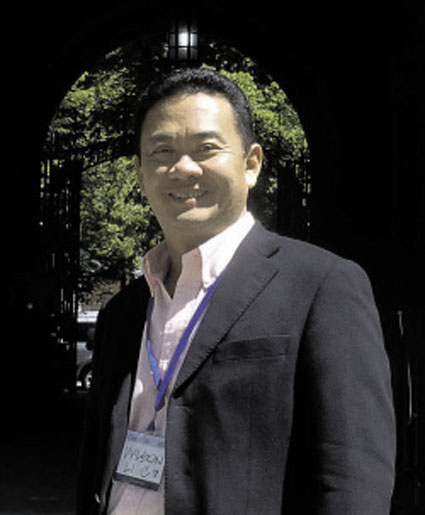Wilson Li : Are we ready for social entrepreneurship in Mauritius?
Share

In a short span of 50 years, we seem to have moved away from Milton Friedman’s doctrine whereby the role of firms is to maximize profits and return a portion of these profits to shareholders who decide how best to utilize them. With increased globalization, many companies such as Apple and Microsoft have reached market capitalizations exceeding the GDP of many medium-sized countries. In other words, firms have become behemoths whose impact is bound to be much more significant worldwide and therefore, voluntarily or not, they affect lives of citizens in much more significant ways than ever before.
Beyond enigmatic catchy phrases such as Google’s “Do No Evil,” many companies now build their strategic imperatives around a reiteration of corporate social responsibility. The Chairperson and CEO of Pepsi IndraNooyi explains the rationale behind her company’s motto “Performance with Purpose” by emphasizing that companies can no longer operate in a vacuum in the pursuit of profits but rather need to behave as good corporate citizens. Aligning its objectives with the United Nations Sustainable Development Goals, Pepsi’s agenda consists of the following core elements: help improve health and well-being through products it sells, protect the planet and empower people around the world.
Common sense dictates that these guidelines help grow profits: for instance, more efficient packaging that is less polluting often costs less to produce. Better design certainly helps. Further, the new generations of consumers such as the Millennials seem to be more attuned to modern considerations such as sustainability. As the percentage of such consumers grow, companies stand to gain from their “more socially conscious”
positioning.
Emerging from this evolution of capitalism are the new B Corps. These companies, certified by B Labs – similar to “Fair Trade” label for coffee – aspire to “meet the highest standards of verified social and environmental performance, public transparency, and legal accountability, and aspire to use the power of markets to solve social and environmental problems.” They constitute a growing global movement of “people using business as a force for good to create shared and durable prosperity for all” – for instance outdoor clothing company Patagonia and ice cream maker Ben & Jerry’s, part of Unilever. At the World Economic Forum conference in Davos, Paul Polman, the CEO of Unilever, stated that he was considering full-fledged certification by B Labs.
How far have we reached here in Mauritius? In a tiny market rife with competition, it could be a risky strategy to move away from a focus on profits. Indeed, if as Intel’s legendary CEO Andrew Grove warned, “Only the paranoid survive,” few captains of industry would be tempted to venture away from pursuing financial results. However, will any company be able to escape this worldwide trend? While the average citizen tends to be relatively docile, again it would seem that younger generations resonate more with, say, environmental concerns. For instance, Phoenix Bev and Coca-Cola recently introduced a new, more ecological PET bottle for Crystal water. While it may still be too early to evaluate the direct impact of this specific change, the strategic move by a huge local brand signals clearly future trends. When a giant like KFC promotes awareness on paper napkins, then the savings involved become consequential.
If we delve deeper, the exiguity of the Mauritian territory makes the question of corporate social responsibility all the more urgent and pressing for our country. On a tiny island, few things can be hidden from view and people are bound to encroach onto their neighbours’ vital spaces. In promiscuous surroundings, any widening of the Gini Index is bound to be felt adversely in pure practical terms. How do we wish to live together tomorrow? In gated communities behind twenty-feet high walls crowned with razor wire and “protected” by security guards armed with shot guns? Locking oneself up into ghettoes certainly does not seem to be a palatable lifestyle for well-to-do elites. Conversely, a safe environment remains a crucial factor to attract world class professionals considering to relocate here in Mauritius. Without this influx of knowledge and know-how, it would take longer for us to progress. Beyond sterile debates, all stakeholders need to steer more efforts and resources towards tangible social impact.
What we need in Mauritius is a new model that balances economic growth with sustainability and human self-actualization. Therefore both startups and existing companies need to become more socially engaged in their core missions. We should not be surprised by the emergence of more and more social enterprises. Capital movements themselves will encourage the formation of these new entities as savvy investors dictate the new paradigms promoting greater good governance and social impact. Let us get ready for the new social imperatives or even better: let us all build this brand new society together!









